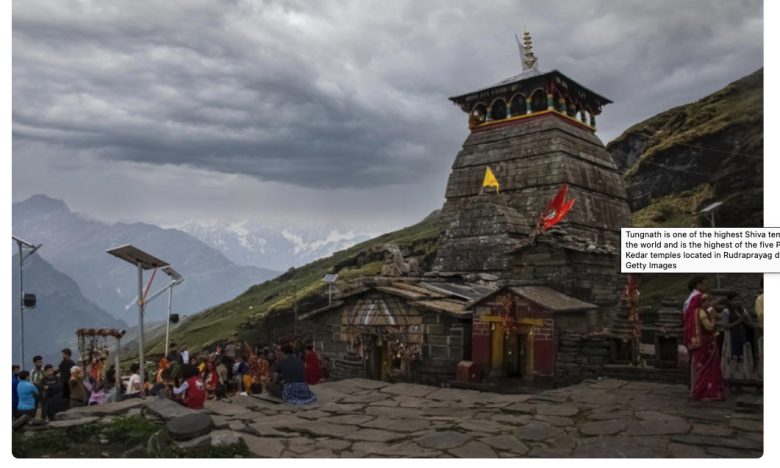INDIA, October 9, 2024 (Newsweek): Indian authorities have issued a safety warning to travelers hoping to visit the highest Shiva temple in the world after monsoon season made the site unsafe. The Tungnath Temple, located in the Rudraprayag district of Uttarakhand in North India, has been structurally damaged by extensive exposure to water, accelerated by monsoons throughout the country, according to The Economic Times. The damage includes a weakened foundation and unstable walls. The temple, located at an altitude of over 12,000 feet, is a popular destination for tourists and Hindus, as it is the highest temple dedicated to Shiva in the world. Like many other temples of its type, the Tungnath Temple is built primarily from slate bricks and slabs. Shiva is a prominent Deity in the Hindu faith, and the temple’s name translates to “Lord of the Peaks.”
However, the Badrinath Kedarnath Temple Committee warned travelers that the area was becoming unsafe, with committee head Ajendra Ajay saying in a statement shared with the Times: “The temple is facing serious issues like subsidence, weakening foundation, and shifting wall slates, which have caused water leakage, especially during the rainy season.” According to the Times, the committee also said that they had contacted the Geological Survey of India and the Central Building Research Institute for support in restoring the temple in September. Uttarakhand’s tourism minister, Satpal Maharaj, also responded to the warning, saying: “Given the temple’s water leakage and structural problems, the government is prioritizing its repair to ensure the structure remains safe for all visitors.” Monsoon season in India normally lasts from June to September. According to the Climate Prediction Center, the country receives 90 percent of its annual rain within this time period. Due to the high altitude of the Tungnath Temple, it is more exposed to the elements than other religious sites.
https://www.newsweek.com/shiva-tungnath-temple-safety-warning-india-1962569

